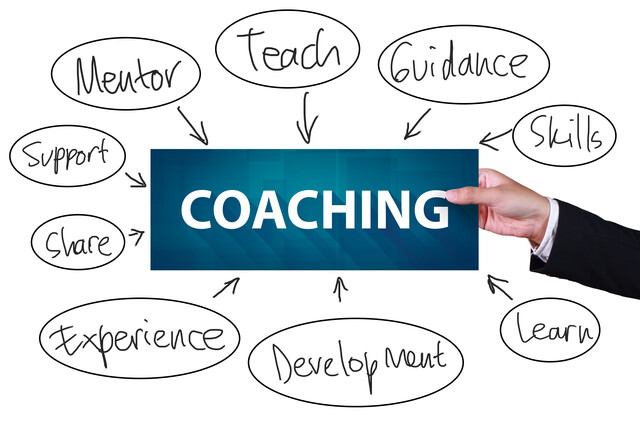Being a life coach means you are whole, you have integrity, you are authentic, and you work at your life as hard as you expect your clients to work at theirs.
Your best lessons have been learned while you have actually lived your life. Your job is to help your clients see that the lessons they learn in life are some of the best, and what is even better is that they get to practice over and over again the tools and techniques you will be teaching them.
Being Responsible for Your Actions
You have probably felt stuck at one point or another in your life. Answer these questions about yourself:
|
For those of you who intend to be a life coach, you did not make excuses or justifications for a problem in your life.
In order to be an authentic life coach, you must be responsible for your actions, just as you are teaching your clients to be responsible for theirs. By making excuse after excuse and attempting to justify why you did not get somewhere, you are lying both to yourself and to your coach. Neither behavior is going to move you forward.
Help Them by Identifying Their Value System
- Learn to identify, understand, and be clear about your own values.
- Are you still living with the value system you developed in your childhood?
- Can you differentiate between the values that work for you and the ones that do not?
Most of us develop our value system by the age of five, and it is usually derived from our parents or caregivers. We learn their language. We learn what they like. We learn what they do not like. From them, we learn how to be friendly and make friends. From them, we learn why, where, and when to tell the truth. From them, we learn our work ethic.
Then we enter that wonderful adolescent age when we discover that our parents are fallible. This is considered to be the stage of rebellion, and most parents hate it.
However, it is not a bad stage.
By rebelling as an adolescent, you are asserting your independence. At that stage, you are asserting your independence against your parents, wanting to prove them wrong. The motivation for that is probably not the best, but the action is good. Learning to question rote behavior is good.
When we become stuck in life, we only have to look at how we usually handle a problem. We find that we keep doing the same thing over and over and over again, somehow expecting a different result. According to Einstein, that is the definition of insanity.
Your job as a life coach is to help your clients identify values, define them, and then help them live up to them. All of us are responsible for our behavior, our actions, even our thoughts.
You may even need to help your client challenge long-held values. Ask, "Are these values that you hold giving you the expected results?" If your clients are not getting the outcomes they are looking for, they may need to change something they value. Perhaps it is time to stop trying to satisfy Mom or Dad and, at the age of 37, finally grow up and make a grownup choice about something.
|
One way to help people identify their values is to ask the following questions:
|
The idea here is that if you do not like where you are heading, you must do something to change it. Otherwise, you are on the train and you will only go where the train is heading.
Teach your client to be responsible for his or her choices and willing to raise standards and then rise to the challenge. Teach clients to strike their own path.
Holding yourself to a higher standard makes you feel you have accomplished more. The power lies in knowing you can do this. Standards are the internal aims that people set. Your behavior will reflect those standards, whether consciously or unconsciously. Choosing different standards is possible because it is exactly that: a choice.
- Evaluate and update your standards as needed.
- Determine your willingness to change your standards.
- Surround yourself with like-minded people, making sure that you choose appropriate role models and eliminate negativity to the degree that you can.
- Set expectations for yourself and hold yourself responsible for them.
- Evaluate your approach to everything: your thoughts, habits, and actions. Do these help or hinder your path to your goal? If they help, keep and augment them. If they do not, eliminate them.
|
Exercise:
|
Honesty Is Still the Best Policy
As a coach, you will be required to honestly reflect or mirror your client. Be aware that there are levels of honesty. Evaluate each situation and your client's emotional position. What is good about what your client is trying? What needs to change? Have your client make this list.
Remember, responsibility means that you have the ability to respond. You may not be able to change the situation, but you can change your response to it.
Honesty: This is sometimes hard to take. We often avoid the truth because we see truth as criticism and it hurts.
Lying is a behavior learned early in childhood when we wanted to avoid a bad reaction to something.
Honesty means telling the truth, the whole truth.
Do people lie to themselves? Sure they do. We do it all the time. Do we know we are lying? Absolutely.
Honestly is inextricably tied to integrity. We really have to strive to be completely genuine in all ways. Closing ourselves off to the truth occurs when we become defensive or afraid to hear something about ourselves. Anger is a common response to an honest evaluation from someone.
These reactions actually distort the truth of an event. There are always two sides to a story and the truth of it always lies somewhere in between. To be honest, you must be open to the truth, and confident that you can overcome the shortfall. Honesty with oneself is probably the most difficult challenge of all in personal development. Honesty does not change with circumstances or with the company you keep. If you are leading an honest life, you are the same with witnesses present to an event as you would be alone. As a coach, you must model and mirror honesty.
How to teach and learn honesty: Honesty leads to authenticity. It demonstrates maturity and frees you from the bonds of expectations of other people. You can shed tons of emotional garbage, never having to remember which story you told to whom. We have all done that, have we not?
|
Anger: Good or Bad
Every single person capable of feeling emotion has felt anger. It is a natural reaction to certain situations. The tough thing about anger is deciding when to express it. What is important is to always acknowledge it.
How do you typically express anger? Can you improve upon it?
What both you and your client need to understand about anger is that feeling anger is not the same thing as expressing anger. Typically in a business situation, any expression of anger is seen as a sign of weakness.
However, feeling anger is a real physical response that has been finely tuned for centuries to keep us safe from harm.
The physical response to anger is our body's call to action in response to some type of perceived threat. We sometimes make a mistake in expressing our anger, especially when it is in a violent or aggressive way.
Anger should not be feared. Society teaches us to feel shame or to be defensive when we experience anger. Yet, anger can point out where we do not want to be going in life and where we do want to go.
Anger occurs when we feel threatened, hurt, betrayed, afraid, embarrassed, or when we need to release pain. Anger can give us courage and power to address a big problem. Anger can allow us to overcome a personal obstacle or protect us from a threat. It is powerful and it must be controlled but not necessarily stopped. Stifled anger will lead to an unfortunate explosion, even a stroke or a heart attack.
|
Anger can be a huge motivator:
|
By taking full responsibility for our anger, we empower ourselves to change.
Gentle Emotions
In the workforce, emotions should be tempered, including strong emotions and those perceived as weak, such as crying. The demonstration of any emotions at work is considered to be a sign of weakness, not one of strength.
While authenticity is stressed when leading your life, it is wise to evaluate situations where the timing of your emotions might be a drawback.
Emotionally even-tempered people are most successful. They are not flat. They laugh, and you can tell when they are angry, but they do not express it openly. They also have learned to be openly compassionate without being effusive.
Handling your emotions maturely is a good goal. Some life events will affect you strongly, and it is up to you to discover how and where to express these emotions.
In a coaching situation, it is vital that your clients feel comfortable enough with you to deal with and talk about events that upset them, frustrate them, or make them sad. Let people talk. Remember, your coaching sessions are a safe place for them.
Be authentic while being mindful of your surroundings. Emotions are true feelings, but be honest with them. Never use emotions as a tool of manipulation. Using anger to force people to do something is no better or worse than using tears to manipulate a situation to your liking.
Be authentic in your emotions. Be responsible with your emotions.































